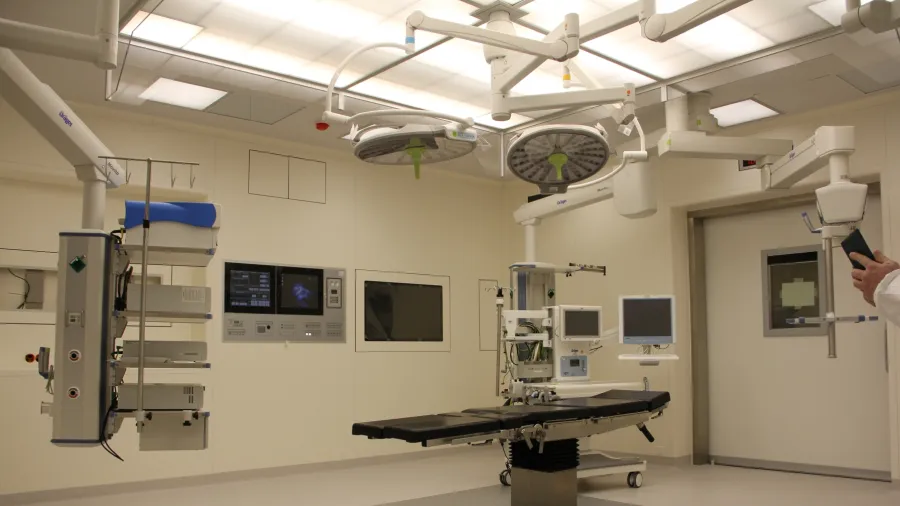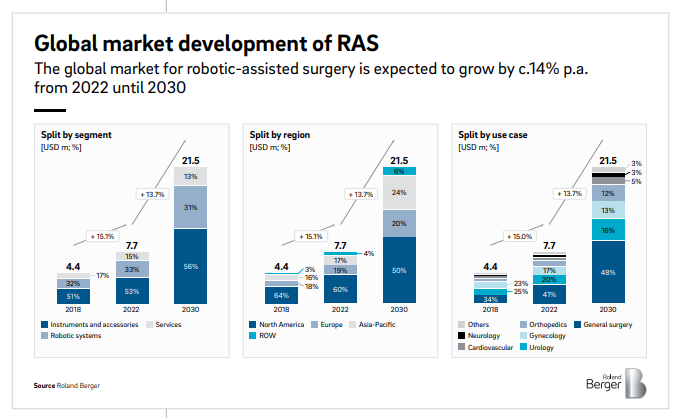
Robot-assisted surgery set to triple in size by 2030: study
APAC poised to grow the fastest, likely to secure a quarter market share.
The global robotic surgery market is projected to grow by an average of 13.7% annually and become a US$21.5b industry by 2030, with the fastest growth seen in the Asia Pacific region, according to a new study by Roland Berger.
The global consultancy firm estimated annual sales in the sector to nearly triple from US$4.4b in 2022 to US$21.5b in 2030, as awareness and adoption of robot-assisted surgery gathers steam. Between 2018 and 2022, the sector grew by an average of 15% annually.
Geographically, APAC is expected to post the fastest growth rate and see its market share increase from 17% in 2022 to 24% by the end of the decade, largely driven by China, Japan, and South Korea.
North America will remain the largest market although its share of the global revenues is expected to shrink to 50% in 2030 from 60% in 2022.
Robotic-assisted operations are expected to be the most used in general surgery (48%), urology (16%), gynecology (13%), and orthopedics (12%).

"The opportunities of the RAS market have attracted a growing number of players, which leads to more competitive pricing and encourages further innovation," said Thilo Kaltenbach, senior partner at Roland Berger.
The sector’s huge growth potential is not without challenges, however. The study showed RAS system manufacturers continued to face hurdles, including high investment and operating costs compared to laparoscopic and traditional surgery.
Adoption has also been slower than anticipated and its use is limited in some areas.



















 Advertise
Advertise




